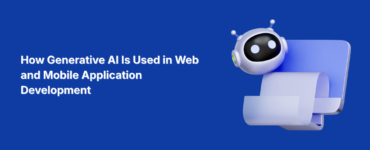If you’ve ever visited a busy clinic or hospital, you know how chaotic appointment scheduling can get. Long waits on phone calls, confusion about available slots, last-minute cancellations — it’s frustrating for patients and exhausting for the staff who manage it all behind the scenes.
To put things in perspective, a recent study by the National Academy of Medicine estimates that nearly 60% of a physician’s workday is spent on administrative duties rather than direct patient care. Similarly, research by Physician Practice reports that administrative tasks cost the US healthcare system roughly $230 billion annually in wasted productivity. These figures highlight a critical systemic issue demanding innovation — and this is precisely where AI agents in healthcare scheduling come into play.
Healthcare professionals often spend countless hours juggling schedules, trying to fit patients in, rearranging when emergencies pop up, and chasing no-shows. This flood of administrative work can take up so much time that it leaves less room for actual patient care. It’s a problem that’s been growing quietly but steadily.
Thankfully, AI agents in healthcare scheduling are changing the game. These smart systems are quietly working in the background to ease the burden of administrative overload, and their impact is already being felt.
Why Is Administrative Overload Such a Big Problem?
While automation is a part of the solution, AI agents are far more sophisticated than mere robotic schedulers. They combine advanced machine learning algorithms, natural language processing (NLP), and predictive analytics to manage complex scheduling challenges in real-time. These agents are capable of learning from historical data, anticipating patient needs, and optimizing resource allocation in ways traditional systems cannot.
Dynamic Scheduling to Match Real-World Complexities
Healthcare scheduling is inherently dynamic. Emergencies, cancellations, insurance verifications, and patient no-shows create ripple effects across the entire calendar. AI agents leverage predictive analytics to forecast potential disruptions before they happen. For example, using historical data, an AI system can identify patterns like frequent no-shows on Mondays or last-minute cancellations during flu season. This enables proactive overbooking strategies or automated waitlist management, helping clinics maintain full utilization without overwhelming staff.
Moreover, AI-driven prioritization models can weigh patient urgency, provider specialty, and appointment type to sequence bookings optimally. This reduces delays for critical cases and balances the load across providers, which human schedulers often struggle to do manually in busy practices.
Cutting Administrative Burden with Natural Interactions
Modern AI agents use NLP-powered chatbots and voice assistants to engage with patients conversationally. Instead of navigating complex phone menus or waiting hours on hold, patients can book, reschedule, or cancel appointments through simple dialogues — anytime and from anywhere.
This seamless interaction reduces patient frustration and administrative call volume. According to a Frost & Sullivan report, healthcare organizations implementing AI scheduling chatbots have seen up to a 40% reduction in inbound scheduling calls, saving hundreds of administrative hours monthly.
Real-Time Resilience and Error Reduction
AI agents continuously monitor scheduling data, enabling immediate adjustments when disruptions occur. If a physician is suddenly unavailable, the AI reschedules affected appointments and automatically notifies patients via SMS or email. These real-time updates reduce no-show rates and minimize gaps in the calendar.
In fact, a case study from a large urban hospital showed that implementing AI scheduling led to a 15% reduction in no-shows and improved appointment adherence rates. Additionally, AI systems significantly cut errors like double bookings or incorrect patient details by validating data at every interaction point.
How Administrative Efficiency Translates to Better Care
Reducing administrative overload has measurable downstream benefits. When clinicians spend less time on scheduling headaches, they can devote more attention to patients, improving diagnosis accuracy and treatment outcomes. A Mayo Clinic study found that freeing physicians from administrative work correlated with a 20% increase in patient satisfaction scores and decreased physician burnout rates by nearly 10%.
From an operational standpoint, optimized scheduling boosts resource utilization. Clinics can handle higher patient volumes without hiring additional staff or expanding facilities, lowering operational costs. AI-powered analytics also provide insights into appointment trends and patient behavior, informing strategic decisions like adjusting clinic hours or hiring specialists.
Overcoming Barriers to Adoption
Despite clear advantages, integrating AI agents in healthcare scheduling requires addressing key challenges:
- Data Security and Privacy: Ensuring compliance with HIPAA and GDPR is non-negotiable. AI providers must incorporate encryption, secure authentication, and data anonymization protocols.
- Interoperability: Many healthcare organizations use legacy EHR and practice management systems. Seamless integration is critical to avoid data silos and fragmented workflows.
- User Acceptance: Both staff and patients may initially resist AI tools due to unfamiliarity or mistrust. Education, transparency, and a hybrid human-AI approach help ease the transition.
- Equity and Accessibility: Solutions must accommodate patients with disabilities or limited tech access by offering alternative scheduling channels.
Intelligent Scheduling as a Foundation for Next-Gen Healthcare
Looking ahead, AI agents will become more predictive and personalized. Imagine systems that analyze a patient’s entire medical history, lifestyle data, and social determinants of health to recommend optimal appointment types or preventive care schedules.
Integration with telehealth platforms will allow AI agents to automatically switch between in-person and virtual visits based on patient preference and clinical requirements. Furthermore, AI-driven scheduling will connect seamlessly with supply chain, staffing, and billing systems, creating an end-to-end intelligent healthcare operations ecosystem.
Why AI Agents in Healthcare Scheduling Are Essential Now
Administrative overload is one of healthcare’s most persistent inefficiencies, draining resources and impacting care quality. AI agents in healthcare scheduling offer a powerful, data-driven cure by automating complex workflows, improving accuracy, and enhancing patient engagement.
With compelling evidence of cost savings, efficiency gains, and improved clinical outcomes, it’s clear that these intelligent systems are no longer optional but essential tools for modern healthcare providers.
For hospitals and clinics aiming to reduce burnout, boost operational resilience, and deliver exceptional patient experiences, embracing AI scheduling agents represents a transformative step toward a smarter, more humane healthcare future.
Frequently Asked Questions (FAQs) about AI Agents in Healthcare Scheduling
1. What are AI agents in healthcare scheduling?
AI agents in healthcare scheduling are intelligent software programs that automate and optimize appointment booking, rescheduling, and patient communication. They use AI technologies like machine learning and natural language processing to handle complex scheduling tasks efficiently.
2. How do AI agents in healthcare scheduling reduce administrative overload?
These AI agents take over repetitive scheduling tasks, handle cancellations and rescheduling in real-time, and communicate with patients automatically. This reduces the workload on administrative staff, saving time and minimizing human errors.
3. Can AI agents in healthcare scheduling improve patient experience?
Yes. By offering 24/7 appointment booking through chatbots or voice assistants and sending timely reminders, AI agents make scheduling easier and more convenient for patients, which leads to higher satisfaction and fewer no-shows.
4. What challenges exist when implementing AI agents in healthcare scheduling?
Challenges include ensuring patient data privacy and security, integrating AI with existing healthcare systems, training staff to use new tools, and making sure all patients can access these technologies regardless of their technical skills.
5. How do AI agents in healthcare scheduling optimize resource management?
AI agents analyze patient needs, provider availability, and historical data to prioritize urgent appointments and balance provider workloads. This dynamic scheduling leads to better utilization of clinic resources and reduces wait times.




